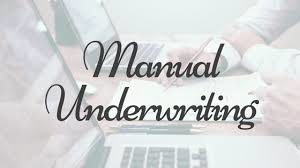Retirement is the time of life when you permanently withdraw from your active working life.
According to Investopedia, most workers, in most developed countries, retire at the age of 60 to 65. And in some countries, government workers retire after working for 35 years even if they are yet to clock the actual retirement age.
On some occasions, workers are forced to retire before the due date if they have health issues that could affect their effectiveness at work. Business owners, on the other hand, retire voluntarily when they feel like it.
Whatever class you belong to, what matters most is planning ahead of retirement time whether or not your employer (for employees) has made any provision for your finances after retirement.
What are Retirement Plans?
Retirement plans are a series of financial strategies that include saving and/or investing part of your earnings while working, for you to live comfortably after leaving the workforce.
In a wider term, retirement plans are not limited to the financial life of the retiree, they also encompass all aspects of life like lifestyle choices, accommodation choices, and others. It is important to venture into retirement plans early, because the earlier the better.
How to Begin a Retirement Plan
Before you opt for a retirement plan, you must take a few steps and put some factors into consideration. Here are a few of the steps you should take:
- Know the time you wish to permanently withdraw from work and when you want to start saving, as a business owner. But as an employee, decide when you want to start saving before you hit your retirement age.
- Know how much you want to save every month. But, as an employee whose employer offers a retirement plan, the monthly deductions from your earnings will be automatic. This keeps you on track and takes away the temptation to forget or stop depositing money on your own.
- Choose the right account for you. As a self-employed individual, use a platform like solo401k.com, which offers more investment options, and easy retirement plans, and puts you in control with access to a world of alternative investment options more than standard 401k or an IRA.
- Check on your investments regularly.
- Make adjustments to your investments, if need be. Especially, whenever there’s a change or an upgrade in your lifestyle.
Types of Retirement Plans
Retirement plans are mainly classified into two categories namely;
● Employer-sponsored Retirement Plans
There are several options of employer’s sponsored plans. Generally, both the employer and the employees have access to several benefits from these types of plans.
These plans include automatic deductions from an employee’s income used as savings, tax breaks, and some other features. There are two major categories of employer-sponsored retirement plans, which are;
- Defined contribution plan, and
- A defined benefit plan.
What is a Defined Benefit Plan?
A defined benefit plan involves the payment of a certain monthly income, consistently to the beneficiaries of such a plan.
However, this monthly income depends on several factors including the length of employment, salary history, and others. It is otherwise known as a pension plan.
.
These plans are sponsored by the employer. In this plan, the employer takes on the risk.
What is a Defined Contribution Plan?
In a defined contribution plan, there is no offer for a guaranteed income at the time of retirement. 401(k) is a typical example of such a plan.
Both the employer and the employee contribute, often at a set percentage rate of an employee’s annual income. In short, the employee takes on the major risk, unlike the other type of plan.
When the employee retires, he or she receives the payment balance based on contributions.
Employer-sponsored plans include 401(k) plans, 457 plans, Roth 401(k) plans, 403(b) plans, thrift savings plans, and others. Seek the counsel of a certified accountant to help you juxtapose each plan and determine the best plan for you.
● Self-employed and Small Businesses Retirement Accounts
As a self-employed individual or small business owner, there are several retirement plan options for you. Solo 401(k) is a typical example of this kind of plan. Other options also include Simple individual retirement accounts, a Payroll deduction IRA, and many more.
Benefits of Retirement Plans
There are several benefits of retirement plans. A few are outlined below:
● Financial Backup to Tackle Financial Crises
Life’s occurrences are unpredictable.
Therefore, it is imperative to always prepare for the worst. When you are out of service, with a reliable retirement plan, you are sure that you and your family members are protected when financial crises arise. You can depend on your savings to solve such a crisis.
● Peace of Mind
Nothing is as beautiful as having peace of mind when you’re no longer in active labor. It should be a time to enjoy your toiling. A retirement plan offers you the benefit of financial independence as you retire from labor.
● Returns on Investment
Investing in a retirement plan helps you to save and grow your money over time. The returns from your investment, when you plan properly, are another financial advantage for you as a retiree.
● Tax Benefits
Investing in a retirement plan helps you to minimize your taxable income. This is a huge relief on your income source while you are also able to save for the future. Also, the tax benefits that a retirement plan offers enable you to manage your investment expenses effectively.
FAQs
- Can I have two or more retirement plans?
Yes, you can have more than one retirement savings account.
- How do I start planning for retirement?
Retirement planning is a very easy process. If your company offers an employer-sponsored plan, you can opt for it and start contributing or go for a self-employed plan like a solo 401(k). However, the earlier you begin to save, the faster you earn interest that grows your investment over time.
- How much should I invest in a retirement plan?
The amount of money to be invested in a retirement plan depends on several factors like; choice of lifestyle, health conditions, financial commitments, expected retirement age, and many more. However, if your employer offers you a retirement plan, the deduction from your monthly earnings will be automatic.
- How soon should I start saving for my retirement?
Well, it is advisable to start saving for retirement as early as you start earning or when you have a stable source of income.
- What is the purpose of retirement?
A job or career takes time, so when you are eventually free from work demands, you will have free time to focus on other areas of your life that you couldn’t focus on before. Oftentimes, retirement gives you an avenue to;
- Devote more time to family and friends.
- Venture into a new business
- Be more socially active.
- Review what you want, strategize your goals for the next stage of your life, and how to achieve them.
- Learn new things.
Parting Words
“Rest is sweet after labor” is only true when there is proper preparation ahead of retirement. Every diligent individual always looks forward to the day they will retire and enjoy the rewards of their labor.
Therefore, it is important to have a retirement plan. When you have a retirement plan, you won’t have to worry when you eventually retire, because the right retirement plan at the right time guarantees a secured future.
Related Articles
- 6 Considerations Before Taking Your Business International
- A Guide On How To Use A VPN
- The Top 2023 Best Credit Cards for Gas & Groceries (Updated)
- HOW TO TAKE OUT A LOAN FOR A BUSINESS: Steps & All You Need
- BASIC LIFE INSURANCE: Definition and What It Covers
- ROTH 401(K): Withdrawal Rules and Comparisons
- RETIREMENT STRATEGIES: Best Strategies to Help You Save Money for Retirement





